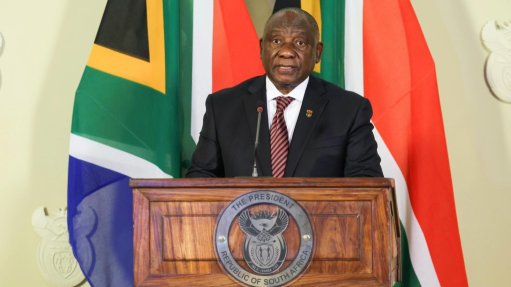Donald Trump will always be Donald Trump, frequently attacking those he disagrees with. President Cyril Ramaphosa found himself in his crosshairs earlier this month – for assenting to the Expropriation Bill, which establishes the framework for compulsory property acquisition by South African government entities.Trump posted on his Truth Social platform: “South Africa is confiscating land and treating certain classes of people very badly. The US won’t stand for it; we will act. Also, I will be cutting off future funding to South Africa until a full investigation of this situation has been completed.” Fake news peddlers immediately went into overdrive, posting a video from eons ago in which Ramaphosa responds to similar criticism by Trump of South Africa’s land reform policy, passing it off as a rejoinder to the latest attack. In the old video, Ramaphosa says: “I don’t know what Donald Trump has to do with South Africa because he has never been here. He should keep his America and we keep our South Africa.” That response wasn’t quite original; it’s reminiscent of the late Robert Mugabe’s diatribe against former British Prime Minister Tony Blair at the 2002 Earth Summit in Johannesburg. At the time, Britain’s relations with Zimbabwe were at their lowest ebb, having worsened after Mugabe’s government grabbed thousands of farms, claiming Britain, the former colonial power, had reneged on a commitment to fund the resettlement of landless indigenous Zimbabweans. Mugabe concluded his stinging attack by stating: “Blair, keep your England, and let me keep my Zimbabwe.” In the latest sparring round, the Presidency’s communications team responded to Trump’s criticism of the Expropriation Act in a very measured manner. In a statement, they denied the new law was an instrument to confiscate land, pointing out that the US and other countries have always had expropriation laws to balance individuals’ property rights and the need for public land use. The statement noted the US is a key strategic political and trade partner for South Africa, and that Ramaphosa was willing to engage with the Trump administration over South Africa’s land reform policy to clear any misunderstanding. What would William Benoit – Trump’s compatriot renowned internationally for his Image Repair Theory (IRT), a framework for responding to crises through communication – say about the reaction of the Presidential communications team? The IRT, which regards bad publicity as a crisis, as it can sully the image of the accused individuals or entities, suggests that those embroiled in a crisis may choose to deny that the crisis exists, evade responsibility for it, reduce its offensiveness, take corrective action or engage in what is known in communication-speak as bolstering, which entails associating with a favourable narrative to soften the blow of the crisis. The communications team came up with messaging that felt very much in line with diplomatic norms, opting for bolstering and corrective action. Bolstering came through in the reference to the US itself and other countries with expropriation laws. The narrative they were pushing – framing South Africa’s Expropriation Act as a balanced, responsible approach to property expropriation, akin to practices in other ‘civilised’ countries – works well in bolstering the country’s image. This was much more image repair stuff than Ramaphosa’s sledgehammer response of some years ago. Corrective action, according to Benoit’s conceptualisation, is all about taking measures, or promising to take measures, to prevent a recurrence of the crisis in the future. Ramaphosa’s communications team expertly did so by expressing a willingness to engage with the US government to ensure its senior officials, including Trump, are presented with the correct facts about land reform in South Africa in the hope they will become more receptive to the idea, thus preventing further attacks in the future. Ramaphosa’s response from those many years ago did not quite build bridges with the Americans; it built a wall instead. But the one from his communication aides this time around was a showstopper – it pivoted to a more measured tone and framed South Africa’s expropriation law within a global context. Well done to them!
To watch Creamer Media's latest video reports,
click here

















